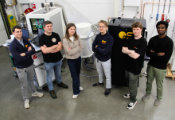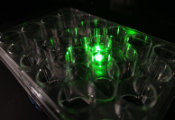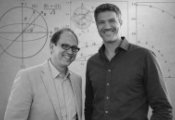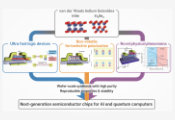ERC Starting Grant for Quantum Simulation Research
September 08, 2025 -- Rahul Trivedi, senior researcher in the theory division at the Max Planck Institute of Quantum Optics (MPQ) and MCQST member, has been awarded a prestigious ERC Starting Grant. The European Research Council will support his project Theory of Noisy Quantum Simulation of Many-body Physics (ToNQS) with €1.5 million over the next five years.
The project aims to establish a theoretical foundation for assessing the accuracy and performance of so-called “noisy” quantum simulators. These devices use controllable quantum systems to reproduce complex many-body phenomena – a promising pathway to explore questions beyond the reach of classical computers.
In quantum computing, noise refers to disruptive influences such as temperature fluctuations, electromagnetic fields, or minute inaccuracies in control. These effects can easily alter or destroy fragile quantum states. Since quantum systems can never be fully isolated from their environment, noise will always be present. Error correction could provide a solution, but it requires so many additional qubits and resources that fully error-corrected quantum computers until now remain a future vision.
Trivedi and his team therefore aim to develop mathematical tools that can certify the reliability of analog quantum simulators even under realistic, noisy conditions. Success would not only dispel long-standing doubts about such simulators, but also benefit fields such as condensed matter physics, quantum optics, high-energy physics, and complexity theory – long before fully fault tolerant quantum computers become a reality.
“I am very happy and grateful to have been awarded the ERC starting grant. The generous funding that comes with this grant will help us to advance our research goal in the field of quantum information and quantum optics and build stronger synergies with other groups in Munich”, Trivedi comments on the grant.
Trivedi’s research group currently consists of three PhD students, one Master’s student and several co-advised students in collaboration with other groups at MPQ. The group also maintains extensive collaborations with partners both within Europe and the US. With the ERC grant, several new positions for PhD students and postdoctoral researchers will become available.




































